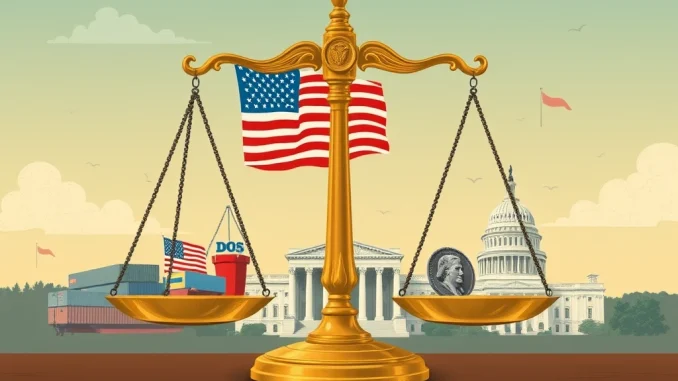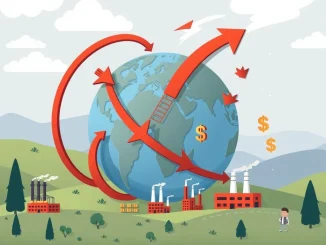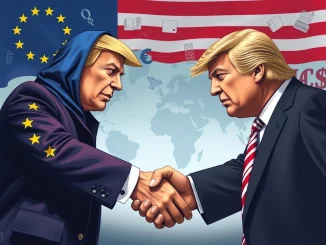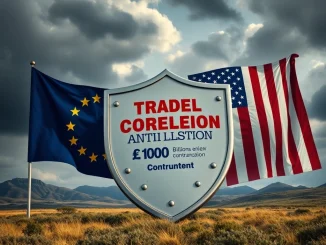
In a significant development impacting U.S. trade policy, the Department of Justice (US DoJ) is taking steps to challenge a recent court decision concerning tariffs implemented during the Trump administration. This legal maneuver highlights ongoing tensions surrounding executive authority and international commerce, a topic often watched closely by those monitoring global markets, including the cryptocurrency space, due to its potential economic ripple effects.
What Happened with the Trump Tariffs and the Court?
The core of the issue revolves around the ‘reciprocal tariffs’ policy enacted under former President Donald Trump. These tariffs aimed to address perceived trade imbalances with certain countries. However, this policy faced legal challenges.
Specifically, on May 28, the U.S. Court of International Trade issued a tariff ruling that effectively invalidated or stopped the enforcement of this reciprocal trade policy. This was a notable setback for the policy’s proponents.
Following this initial ruling, the Federal Circuit Court had already put a temporary delay, or ‘stay,’ on the enforcement of the Court of International Trade’s decision. This meant the tariffs weren’t immediately removed or changed while the legal process continued.
Why Does the US DoJ Want an Extension?
According to reports, the US DoJ has now formally requested the appeals court to extend this stay. Their primary argument centers on the assertion that the original court decision to invalidate the tariffs could potentially “infringe on the president’s foreign policy authority.”
Here’s a breakdown of the DoJ’s likely position:
- Executive Authority: The DoJ contends that the power to implement such trade policy measures, especially those tied to international relations and negotiations, falls squarely within the executive branch’s purview.
- Foreign Policy Implications: Invalidating the tariffs could weaken the President’s position in ongoing or future trade negotiations and potentially disrupt diplomatic efforts tied to trade balances.
- Maintaining Status Quo: Extending the stay allows the tariffs to remain in place while the legal battle continues, preventing a potentially disruptive shift in trade policy that might later be overturned on appeal.
This request underscores the executive branch’s desire to defend its authority in using tariffs as a tool of foreign and economic policy.
What’s Next in the Legal Battle Over the Tariff Ruling?
The request for an extension of the stay is a procedural step within the larger appeals process. The appeals court will now consider the US DoJ‘s arguments and decide whether to grant the extension.
If the stay is extended, the invalidated Trump tariffs would remain in effect for a longer period while the appeal of the original court decision is heard. If the extension is denied, the ruling invalidating the tariffs could take effect sooner, potentially leading to their removal or alteration.
The ultimate outcome will depend on the appeals court’s interpretation of the relevant trade laws and the extent of presidential authority in setting trade policy.
Summary: The Fight for Trump Tariffs Continues
The US DoJ‘s request for an extended stay signals a firm commitment from the current administration to defend the executive’s role in setting and enforcing trade policy, specifically the challenged Trump tariffs. This legal confrontation between the executive branch and the judiciary over a significant tariff ruling is a critical development for businesses engaged in international trade and highlights the complex interplay between domestic law and foreign policy. The outcome of the appeals process will be closely watched for its implications on future trade actions and the balance of power between government branches.



